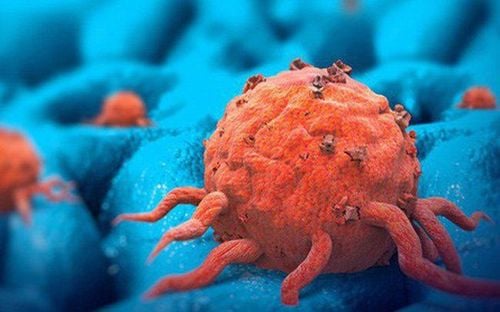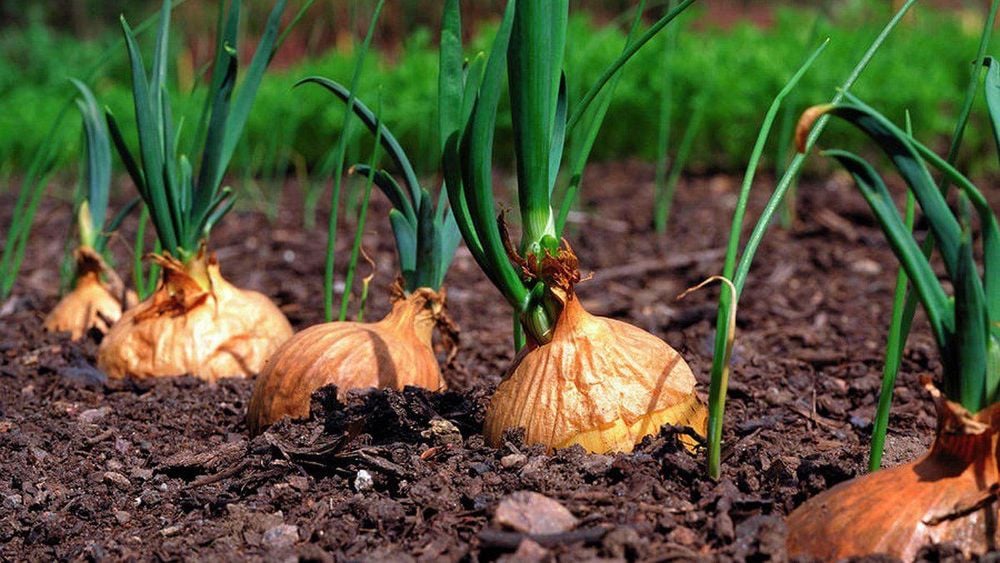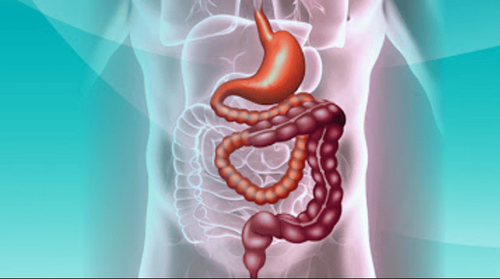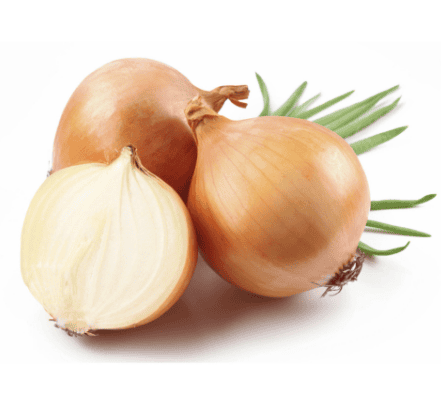This is an automatically translated article.
Onions vary in size, shape, color, and flavor. The most common varieties are red, yellow and white onions. The flavor of these vegetables can range from sweet and savory to sharp, spicy and pungent, often depending on the season in which people grow and consume them. According to the Food and Agriculture Organization of the United Nations, China is the largest producer of onions worldwide. In this article, we discuss 9 impressive health benefits of onions, their nutritional content, and how to prepare them.1. Onions - Health Benefits, Health Risks and Nutrition Facts
Onions originated in Central Asia, in present-day Iran and Pakistan. Onions belong to the Allium plant family, which also includes shallots, garlic, and leeks. These vegetables often have a characteristic pungent taste and some medicinal properties. What are the benefits of eating onions? Onions may also offer potential health benefits. These may include reducing the risk of certain types of cancer, improving mood, and maintaining skin and hair health.Onions may be one of the earliest crops and have been used since prehistoric times. Onions also grew in Chinese gardens 5,000 years ago, and they are mentioned in the oldest Vedic writings from India. The Greeks used onions to strengthen athletes for the Olympic Games. Before the competition, athletes will eat onions, drink onion juice and apply onions to their body. Pliny the Elder cataloged the Roman beliefs that onions could cure poor eyesight, induce sleep, and heal mouth sores, dog bites, toothaches, dysentery, and low back pain. By the Middle Ages, the three main vegetables of European cuisine were beans, cabbage, and onions.
Onions are prescribed to relieve headaches, snake bites and hair loss. However, they found that Native Americans used onions in a variety of ways: eaten raw or cooked, as a condiment, or as a vegetable. Onions are also used in syrups, as poultices, as an ingredient in dyes, and even in toys. Onions are yellow, red or white.
In the United States, yellow onions account for about 87% of commercial onion production; purple onion is 8 percent; white onions, 5 percent. Onions range in size from less than 1 inch in diameter to over 4.5 inches. The most common size sold in the US market is 2 to 3.75 inches. Scallions are actually immature yellow, red or white onions that are harvested before the bulbs begin to form. "Onion" and "salad onion" are other aliases for immature onions. Scallions are not chives. Purple onions have a distinctive flavor, but the flavor is closer to that of a mature onion than that of a green onion.
Victoria Jar Dabkowski, a dietitian with the Texas Institute of Exercise at the University of Texas at Austin, says: “Onions are great for health. "They are excellent sources of vitamin C, sulfuric compounds, flavonoids and phytochemicals." Phytochemicals, or phytonutrients, are natural compounds found in fruits and vegetables that react with the human body to trigger healthy responses. Flavonoids are responsible for pigmentation in many fruits and vegetables. Studies have shown that onions can help reduce the risk of Parkinson's disease, cardiovascular disease, and stroke. One particularly valuable flavonoid in onions is quercetin, which acts as an antioxidant that may be involved in preventing cancer. “Onions may also be beneficial for heart health, despite numerous studies,” says Angela Lemond, a registered dietitian in Plano, Texas and a spokesperson for the Academy of Nutrition and Dietetics. More research needs to be done to be accurately identified.
According to the University of Maryland Medical Center, Quercetin, onions have many other benefits, helping to relieve symptoms of bladder infections, promote prostate health, and lower blood pressure. Other important phytochemicals in onions are disulfides, trisulfides, cepaene, and vinyldithiins. They are all helpful in maintaining good health and have anti-cancer and antibacterial properties, according to the National Onion Association.
According to a 2002 report in the journal Phytotherapy Research, partly due to its use in cooking around the world, onions are one of the most important sources of antioxidants in the human diet. . The high antioxidant content gives onions their distinctive sweet taste and aroma. “This food is high in antioxidants and amino acids that allow your body to function optimally,” says Lemond. "Antioxidants help prevent damage and cancer. Amino acids are the basic building blocks of proteins, and proteins are used in almost every vital function of the body." The sulfide in onions contains essential amino acids.

Hành tây có công dụng giảm nguy cơ mắc phải một số loại ung thư
Below is the nutritional information for onions, according to the US Food and Drug Administration, which regulates food labeling through the National Labeling and Education Act. Nutritional value of onions: Servings: 1 medium onion (5.3 oz / 148 g)
Calories: 45 (Calories from fat: 0) Quantity per serving (% DV *) * Percent Daily Value (% DV) based on a 2,000 calorie diet. Total Fat: 0g (0%) Total Carbohydrate: 11g (4%), Fiber 3g (12%), Sugar 9g, Cholesterol: 0mg (0%), Sodium: 5mg (0%), Potassium: 190mg (5 %), Protein: 1g, Vitamin A: (0%), Vitamin C: (20%), Calcium: (4%), Iron: (4%). Health Benefits Heart Health According to Jar Dabkowski, onions are recommended for a healthy heart in many ways, including "reducing blood pressure and reducing the risk of heart attack." A 2002 study in the journal Thrombosis Research found that sulfur acts as a natural blood thinner and prevents blood platelets from clumping. When the platelets clump, the risk of a heart attack or stroke increases. A 2016 study in the journal Redox Biology found that onion consumption increased oxylipin, which helps regulate blood fats and cholesterol levels. According to the University of Maryland Medical Center, the quercetin in onions can also help prevent plaque buildup in the arteries, reducing the risk of heart attack and stroke. But since most of the research on this issue has focused on animals, more research is needed to understand the effects in humans. Anti-inflammatory onion sulfur may be an effective anti-inflammatory, according to a 1990 study in the International Archives of Allergy and Applied Immunology.
According to a 2013 study in the American Journal of Physiology, Quercetin has been shown to relax airway muscles and may reduce asthma symptoms. "The polyphenols in onions act as antioxidants, protecting the body against free radicals," says Anne Mauney, a nutritionist based in Washington, D.C. According to the University of Maryland Medical Center, the quercetin present in onions also reduces allergic reactions by preventing the body from producing histamine, which is the substance that causes sneezing, crying, and itching if we are allergic. response.
For cancer risk A 2015 meta-analysis found that eating more allium vegetables, including onions, was associated with a reduced risk of stomach cancer. According to World's Healthiest Foods from the George Mateljan Foundation, eating one to seven servings of onions per week can help reduce the risk of colorectal, larynx, and ovarian cancer. Eating several servings of onions a day may help reduce the risk of mouth and esophageal cancer. According to the association, red onions are high in quercetin. Purple and yellow onions are also good choices. White onions contain the least amount of quercetin and other antioxidants. Onions may also help reduce some of the side effects caused by cancer treatment.
A 2016 study published in Integrative Cancer Therapies found that consuming raw yellow onions helped reduce insulin resistance and hyperglycemia in breast cancer patients undergoing a form of chemotherapy that caused insulin resistance.
Digestion The fiber present in onions promotes good digestion and helps you to have regular bowel movements. In addition, onions contain a special type of soluble fiber called oligofructose, which promotes the growth of good bacteria in our intestinal tract.

Chất xơ trong hành tây giúp hệ tiêu hóa của bạn hoạt động hiệu quả hơn
Onions help increase bone density in older women A 2009 study in the journal Menopause found that daily onion consumption improved bone density in women who were about to or have gone through menopause. Women who regularly ate onions had a 20% lower risk of hip fracture than those who never ate onions.
However, some substances in onions cause side effects for users. Carbohydrates in onions can cause gas and bloating, according to the National Digestive Diseases Information Service. According to a 1990 study in the American Journal of Gastroenterology, onions, especially if eaten raw, may worsen heartburn in people with chronic heartburn or GERD.
According to the University of Georgia, eating large amounts of scallions or rapidly increasing scallion consumption can interfere with blood-thinning medications. Green onions contain a large amount of vitamin K, which can reduce the function of blood thinners. It can also be caused by a food intolerance or an allergy to onions, but this is rare, according to an article in the Journal of Allergy and Clinical Immunology. People with an onion allergy may experience red, itchy eyes and a rash if the onion comes into contact with the skin. People who are intolerant to onions may experience nausea, vomiting, and other stomach upsets.
2. 9 amazing health benefits of onions
2.1. Contains high levels of nutrients. Onions are nutrient-dense, which means they are low in calories but high in vitamins and minerals. One medium onion contains 44 calories but provides a significant amount of vitamins, minerals and fiber. This vegetable is particularly high in vitamin C, a nutrient involved in regulating immune health, collagen production, tissue repair and iron absorption. Vitamin C also acts as a powerful antioxidant in your body helping to protect your cells against damage caused by unstable molecules, and known as free radicals. Onions are also high in B vitamins, including folate (B9) and pyridoxine (B6), which play important roles in metabolism, red blood cell production and nerve function. Finally, they are a good source of potassium and a mineral that many people are lacking.2.2. May Benefit Your Heart Health Onions contain antioxidants, anti-inflammatory compounds, lower triglycerides and lower cholesterol levels. All of which can reduce your risk of heart disease. The strong anti-inflammatory properties of onions may also help reduce high blood pressure and protect against blood clots. Quercetin is a flavonoid antioxidant that is highly concentrated in onions. Because it is a potent anti-inflammatory, it may help reduce heart disease risk factors, such as high blood pressure.
Onions have also been shown to lower cholesterol levels. Additionally, evidence from animal studies supports that onion consumption can reduce risk factors for heart disease, including inflammation, high triglyceride levels, and blood clot formation. Research shows that eating onions can help reduce heart disease risk factors, such as high blood pressure, high triglyceride levels, and inflammation.
2.3. Antioxidants Antioxidants are compounds that inhibit oxidation, a process that leads to cell damage and contributes to diseases like cancer, diabetes, and heart disease. Onions are an excellent source of antioxidants. In fact, they contain more than 25 different types of flavonoid antioxidants. In particular, red onions also contain anthocyanins - special plant pigments in the flavonoid family that give red onions their deep color. Many population studies have found that people who consume more foods rich in anthocyanins have a reduced risk of heart disease. Additionally, anthocyanins have been found to protect against certain types of cancer and diabetes.

Hành tây là nguồn thực phẩm giàu chất chống oxy hóa
2.5. Helps control blood sugar. Eating onions can help control blood sugar levels, which is especially meaningful for people with diabetes or pre-diabetes. In addition, many animal studies have shown that onion consumption can be beneficial for blood sugar control. Specific compounds found in onions, such as quercetin and sulfur compounds, have anti-diabetic effects. For example, quercetin has been shown to interact with cells in the small intestine, pancreas, skeletal muscle, adipose tissue, and liver to control your whole body's blood sugar regulation. Due to the many beneficial compounds found in onions, consuming them can help reduce high blood sugar levels.
2.6. May increase bone density. While dairy is prized for promoting bone health, many other foods, including onions, can help support strong bones. A study in 24 middle-aged and postmenopausal women found that those who consumed 100ml of onion juice daily for 8 weeks had improved bone mineral density and antioxidant activity compared to a control group. Plus, research has proven that older women who most frequently ate onions had a 20% lower risk of hip fracture than those who never ate onions. Onions are believed to help reduce oxidative stress, boost antioxidant levels and reduce bone loss, possibly preventing osteoporosis and boosting bone density
2.7. Has antibacterial properties Onions can fight potentially dangerous bacteria such as Escherichia coli (E. coli), Pseudomonas aeruginosa, Staphylococcus aureus (S. aureus) and Bacillus cereus. Furthermore, onion extract has been shown to inhibit the growth of Vibrio cholerae, a bacterium of great public health concern in developing countries. Quercetin extracted from onions seems to be a particularly powerful way to help fight bacteria.
An in vitro study demonstrated that quercetin extracted from yellow onion peel successfully inhibited the growth of Helicobacter pylori (H. pylori) and Methicillin-resistant Staphylococcus aureus (MRSA). H. pylori is a bacteria that has been linked to stomach ulcers and some digestive cancers, while MRSA is an antibiotic-resistant bacteria that causes infections in several different parts of the body.
Hành tây được chứng minh có thể chống lại vi khuẩn nguy hiểm như E.Coli
Research has shown that these short-chain fatty acids promote gut health, boost immunity, reduce inflammation, and boost digestion. Additionally, consuming foods rich in prebiotics will help increase beneficial bacteria, such as strains of Lactobacillus and bifidobacterium, that are beneficial for digestive health.
A diet rich in prebiotics can help improve the absorption of important minerals like calcium, which can improve bone health. Onions are especially rich in the prebiotics inulin and fructooligosaccharides. These will help increase the number of friendly bacteria in your gut and improve immune function
2.9. Easily Add To Your Diet Onions are a staple in kitchens around the world. They give flavor to savory dishes and can be enjoyed raw or cooked. Not to mention, they can help boost our intake of fiber, vitamins and minerals.
Please dial HOTLINE for more information or register for an appointment HERE. Download MyVinmec app to make appointments faster and to manage your bookings easily.
Reference sources: livescience.com, medicalnewstoday.com, healthline.com












